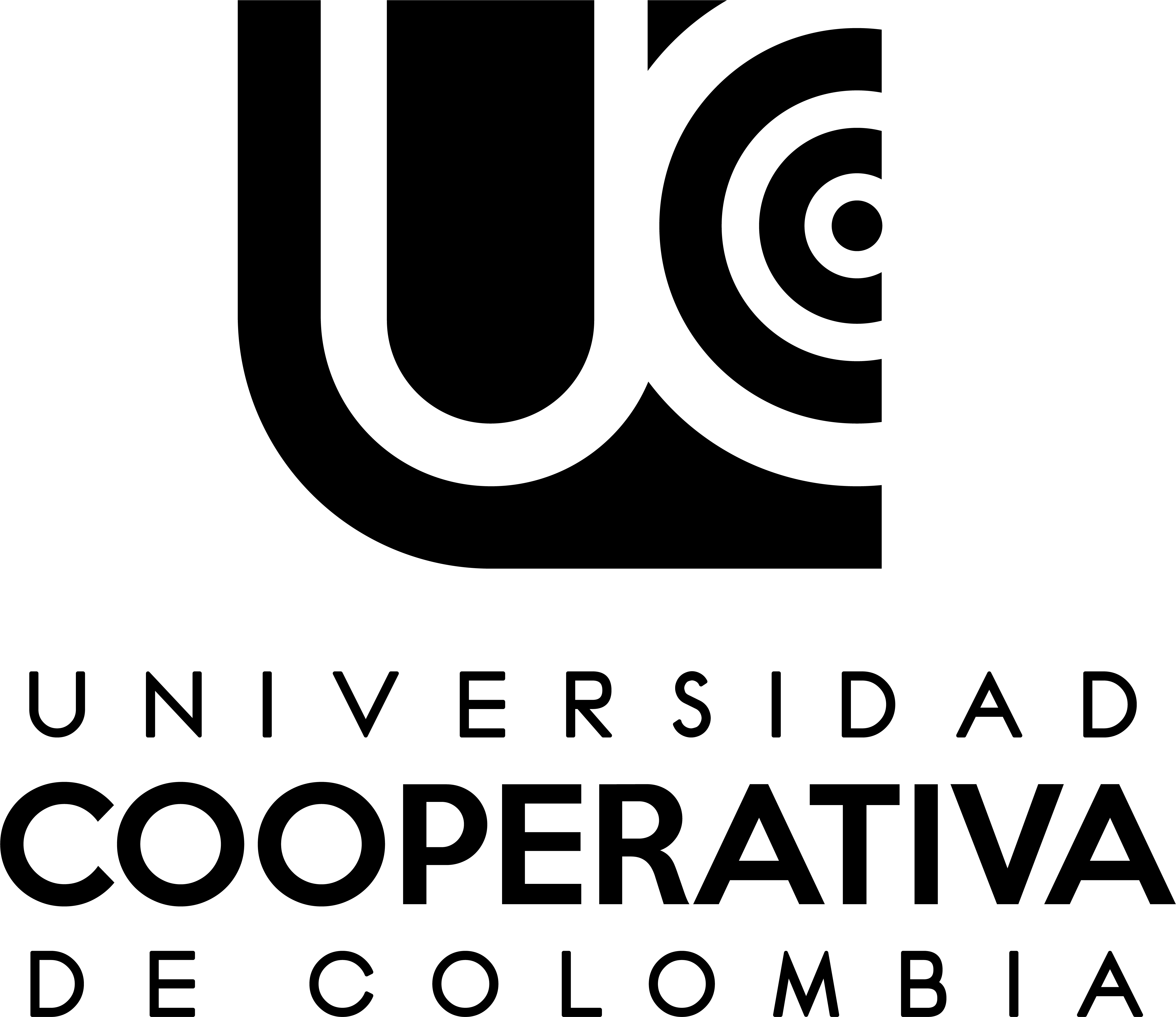Flexural strength tests of a composite concrete and coffee husk cobblestone for use in pedestrian and light vehicular traffic surfaces, according to NTC 2017 Standard
Industrial Engineering Student. Faculty of Engineering, Industrial Engineering, Universidad Distrital Francisco Jose de Caldas, Bogota, Colombia
email: daamunozc@correo.udistrital.edu.co
Industrial Engineering Student. Faculty of Engineering, Industrial Engineering, Universidad Distrital Francisco José de Caldas, Bogotá, Colombia
email: lvmirandav@correo.udistrital.edu.co
Master in Environmental Sciences, Mechanical Engineering. Faculty of Engineering, Environmental Engineering, Reseach Group environmental management and sustainable development, Universidad ECCI, Bogota, Colombia
email: nnievesp@ecci.edu.co
Master in Industrial Engineering, Mechanical Engineering. Faculty of Engineering, Industrial Engineering, Reseach Group Mechatronic Systems and Telecommunications, Universidad Distrital Francisco Jose de Caldas, Bogota, Colombia
email: catoledob@udistrital.edu.co
Introduction: The article is the product of the research “Characterization of a composite concrete and coffee husk cobblestone for use in pedestrian and light vehicular traffic surfaces”, developed at the Universidad Distrital Francisco José de Caldas, in 2022.
Objective: Evaluate the viability of using coffee husks as a partial substitute in the manufacture of cobblestone according to the Colombian Technical Standard “NTC 2017, Concrete cobblestones for Paving”.
Methodology: The design, manufacture and analysis of cobbles was developed under the Colombian Technical Standard 2017. The coffee husk employed for the manufacture of the cobblestones was used in mixtures equivalent to 10%, acting as a substitute for sand and cement.
Conclusions: The experimental data suggests that the coffee husk mixture should not exceed 10%. The Flexural Strength values increased significantly in comparison to the mixtures whose coffee husk percentages were in ranges between 0.5 and 1.0%.
Originality: Following the bibliographical review, we propose and elaborate upon the idea of using composite concrete and coffee husk cobblestone for pedestrian and light vehicular traffic surfaces
Limitations: There were no limitations as the materials used are of conventional use.
ONU, “El Acuerdo de París”. n.d. [Online]. pp.1-1. Available: https://www.un.org/es/climatechange/paris-agreement
Colombia. Ministry of Foreign Affairs, “Colombia promoted decisions to accelerate the implementation of the Paris Agreement in this decisive decade,” pp.1-1. 2021. [Online]. Available: https://www.cancilleria.gov.co/cop26-colombia-impulso-decisiones-acelerar-implementacion-acuerdo-paris-decada-decisiva
K. Andrade, et al. “Supercritical fluid extraction from spent coffee grounds and coffee husks: Antioxidant activity and effect of operational variables on extract composition,” Talanta, vol. 88, pp. 544-552, 2022. doi: https://doi.org/10.1016/j.talanta.2011.11.031
R. C. Campos, et al., “New sustainable perspectives for “coffee wastewater” and other by-products: a critical review,” Future Foods, vol. 4, pp. 1-10, 2021. doi: https://doi.org/10.1016/j.fufo.2021.100058
C.A. Damiani Lazo, S.M. Cáceres Larico, A.G. Mamani Flores, “Concrete bricks with recycled rubber fibers alternative material for social housing,” Revista Ingeniería Solidaria, vol. 17, no. 3, pp.2-4, 2021. doi: https://doi.org/10.16925/2357-6014.2021.03.01
S. Zareei, F. Ameri, N. Bahrami, “Microstructure, strength, and durability of eco-friendly concretes containing sugarcane bagasse ash,” Construction and Building Materials, vol. 184, pp. 258–268. 2018. doi: https://doi.org/10.1016/j.conbuildmat.2018.06.153
L. Aizpurua, G. Moreno, K. Caballero, “Estudio del concreto de alta resistencia con el uso de cenizas de materiales orgánicos y polímeros,” I+D Tecnológico, vol. 14, pp. 29-37, 2018. doi: https://doi.org/10.33412/idt.v14.2.2071 [Accessed: 10 January 2022].
G. Castillo, J. C. Chavarry, J. K. Peralta Panta, “Uso de residuos agroindustriales en las propiedades mecánicas del concreto: Una revisión literaria,” Ingeniería y sus alcances, vol. 5, pp. 123-142, 2021. doi: https://doi.org/10.33996/revistaingenieria.v5i13.86.
C. Patiño, A. Jenny, “Comportamiento del concreto con cascarilla de café y posibilidades ante textura y color,” Univ. Nacional de Colombia, Medellín, Colombia. pp.61-75, 2019. [Online]. Available: https://repositorio.unal.edu.co/bitstream/handle/unal/77004/JennyCoralPatino.2019.pdf?sequence=1&isAllowed=y
D. Campo, K. Barco, H. Dorado, C. Gaviria, “Analysis of temperature control effect in fluidized bed coffee roaster,” Visión Electrónica, vol. 14, no. 2, pp. 255-263, 2020. doi: https://doi.org/10.14483/22484728.17431
R. Zea Navarro, “Proyectamos que la producción de café estará en 13,2 millones de sacos este 2022, lo que representará un crecimiento de 5% frente al año anterior: ministro Rodolfo Zea Navarro”. pp.1-1. .2022. [Online]. Available: https://www.minagricultura.gov.co/noticias/Paginas/Proyectamos-que-la-producci%C3%B3n-de-caf%C3%A9-estar%C3%A1-en-13,2-millones-de-sacos-este-2022,-lo-que-representar%C3%A1-un-crecimiento-de-5-f.aspx#:~:text=Bogot%C3%A1%2C%2015%20de%20febrero%20de,5%25%20.
R. Alves, F. Rodrigues, M. Nunes, A. Vinha, M. Oliveira, “Handbook of Coffee Processing By-Products,” Academic Press, vol. 1, pp. 1-26, 2017. doi: https://doi.org/10.1016/B978-0-12-811290-8.00001-3
Instituto Colombiano de Normas Técnicas y Certificación, Concretos. Especificaciones de los Agregados para concreto. NTC 174. pp.12-15. [Online]. Available: https://www.emcali.com.co/documents/148832/183512/NTC+174+de+2000.pdf/48743818-51a7-a131-236b-255f4b87b5a9?t=1532960691265&download=true
Instituto Colombiano de Normas Técnicas y Certificación, Adoquines de concreto para pavimentos. NTC 2017. pp.4-11. [Online]. Available: https://metroblock.com.co/norma-tecnica-colombiana-ntc-2017/
Construreyes Ingeniería, Como cubicar concreto - Cantidad de materiales para hormigón, [Vídeo], 2020. [Online]. Available: https://www.youtube.com/watch?v=zK7ZQt1iGz0
American Society for Testing and Materials, Standard Test Method for Static Modulus of Elasticity and Poisson's Ratio of Concrete in Compression. ASTM C469-94. pp.2-4. [Online]. Available: https://www.astm.org/c0773-88r20.html
American Society for Testing and Materials, Standard Test Method for Compressive (Crushing) Strength of Fired Whiteware Materials. ASTM C773-88. pp.1-1. [Online]. Available: https://www.astm.org/c0773-88r20.html
S. Chaves, W. Castellanos, “Efecto del envejecimiento de mezclas asfálticas en el ciclo de vida del pavimento desde el aspecto técnico y ambiental. Revisión del estado de conocimiento,” Revista Vínculos, vol. 17, no. 1, pp. 7-23, 2020. doi: https://doi.org/10.14483/2322939X.16227
Copyright (c) 2023 Ingeniería Solidaria

This work is licensed under a Creative Commons Attribution 4.0 International License.
Cession of rights and ethical commitment
As the author of the article, I declare that is an original unpublished work exclusively created by me, that it has not been submitted for simultaneous evaluation by another publication and that there is no impediment of any kind for concession of the rights provided for in this contract.
In this sense, I am committed to await the result of the evaluation by the journal Ingeniería Solidaría before considering its submission to another medium; in case the response by that publication is positive, additionally, I am committed to respond for any action involving claims, plagiarism or any other kind of claim that could be made by third parties.
At the same time, as the author or co-author, I declare that I am completely in agreement with the conditions presented in this work and that I cede all patrimonial rights, in other words, regarding reproduction, public communication, distribution, dissemination, transformation, making it available and all forms of exploitation of the work using any medium or procedure, during the term of the legal protection of the work and in every country in the world, to the Universidad Cooperativa de Colombia Press.










